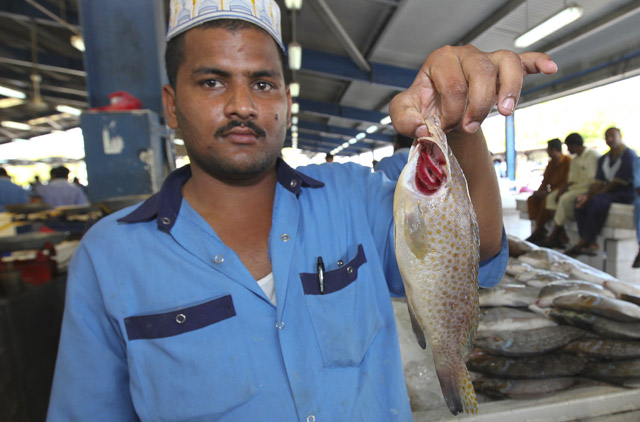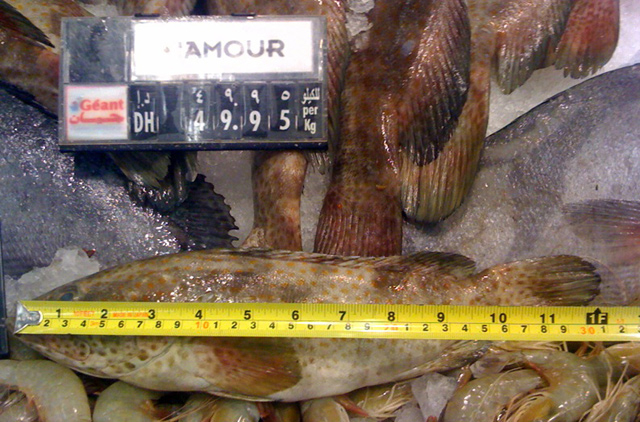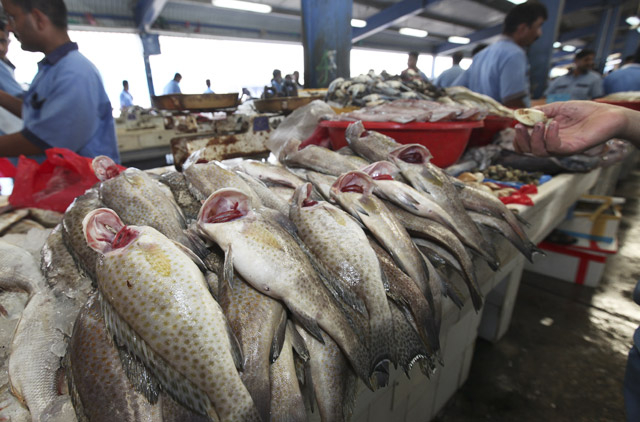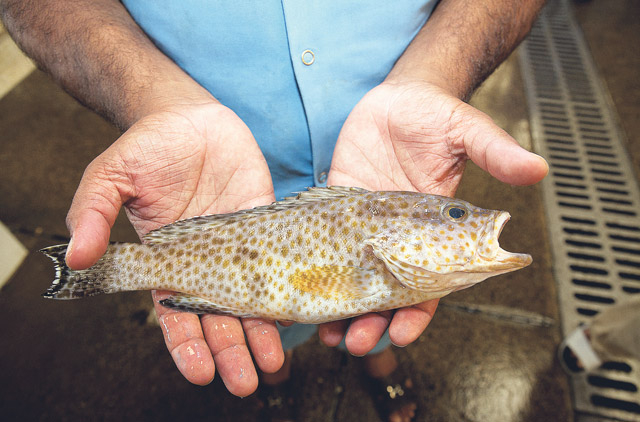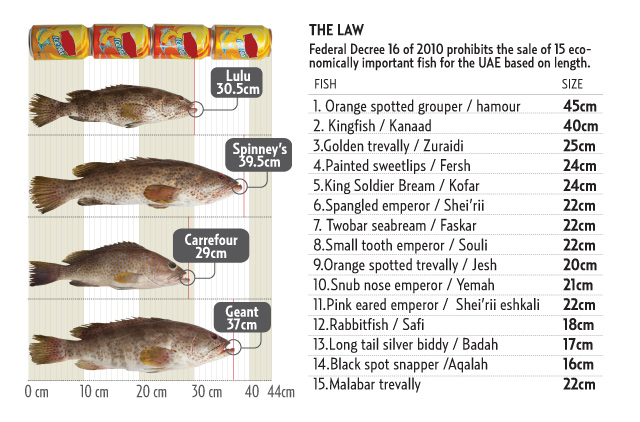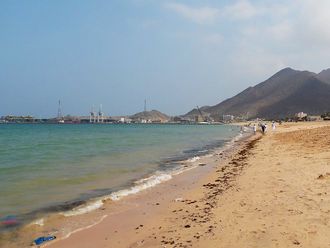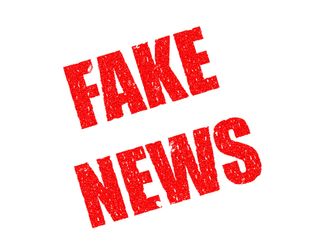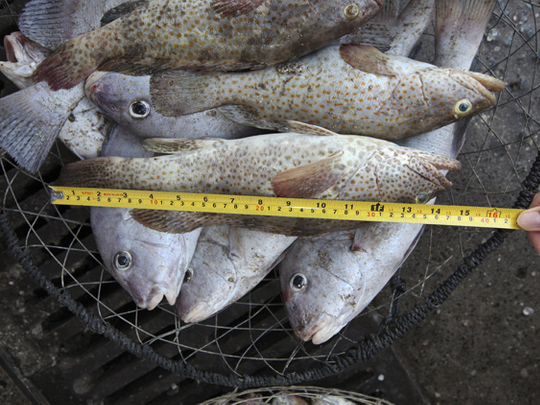
Dubai: Despite federal fishing restrictions for hamour, the popular grouper fish, which states that no fish under 45cm should be caught or sold, Gulf News has found that most supermarket chains still do.
Hamour is one of the most overfished species in the Arabian Gulf and stocks have been seriously depleting since at least 2004, according to the fisheries department at the Ministry of Environment and Water.
Today, on World Oceans Day, Gulf News is urging individual consumers, supermarkets and restaurants not to eat or stock juvenile fish, which is the key to keeping the oceans alive.
Catching small hamour means they probably have not reproduced yet. Overall 15 fish have been earmarked by the fisheries department for protection by limiting their catch based on size and breeding seasons under Federal Decree 16 of 2010.
The size restrictions on these fish are part of a national initiative to reverse their decline.
Brochure
Saif Al Shar'a, executive manager of water resources and nature conservation department at the Ministry of Environment and Water, said a brochure in English, Arabic and Hindi has been distributed to all fishermen on new fish sizes allowed to be caught, based on their length.
Inspections conducted earlier by officials found that fishermen in Deira fish market are bringing in too many small fish.
"The UAE is the first GCC country to have such a decree on fish sizes and we are looking at developing a regional decree between all countries to cooperate. This will help the species to breed and the fishermen to have fish to catch in the future," Al Shar'a said.
According to Environment Agency Abu Dhabi, the average size of hamour caught is just over 36cm; however hamour do not reach sexual maturity until they are 42.6cm.
A spot-check for undersized hamour at Deira fish market, Carrefour Shindagha, Spinney's on Beach Road, Choithram near Safa Park, Lulu near Mall of the Emirates and Geant supermarket at Ibn Battuta mall found that they all had baby hamour on ice, for sale.
The sizes averaged about 30cm. The Union Cooperative near Safa Park was the only store that had hamour well over 45cm long.
‘Not intentional'
A source from Spinney's said it was not intentional to stock undersized fish.
"We will apply better measures and definitely do not want to go against a federal decree. We will make sure this does not happen again," she said.
"We won't be displaying any more small fish and tell our staff and suppliers to be more careful."
Manoj Thanwani, spokesperson for Choithram, said the supermarket chain has already stopped selling orange roughy and blue ling and discontinued all promotional displays of grenadier, scabbard and bluefin tuna, it was promoting sustainable fish.
"Choithram aims to promote well managed, healthy fisheries and serve consumers in a way which reduces fishing pressures on marine life that are being rapidly depleted," said Thanwani in a statement. No other supermarkets were available for comment.
Emirates Wildlife Society-WWF launched a consumer guide that categorises 19 common fish to make picking sustainable fish easier.
According to EWS-WWF 60 per cent of the total catch in the UAE is made up of species that are fished beyond sustainable levels. In 2009 in Abu Dhabi alone, 939.2 tonnes of hamour was caught.
Green zeal: World Ocean Day
As a result of a United Nations General Assembly resolution passed in December 2008, World Oceans Day is now officially recognised by the UN as June 8 every year.
The Government of Canada first proposed a "World Ocean Day" at the Earth Summit in Rio de Janeiro in 1992. World Oceans Day provides an important boost to those organizations and individuals who have been deeply committed to ocean conservation.
If you feel sustainable fisheries are not being supported visit the EWS-WWF campaign website www.choosewisely.ae and fill in the open letter directed to restaurants and supermarkets that still stock undersized fish or endangered species.


